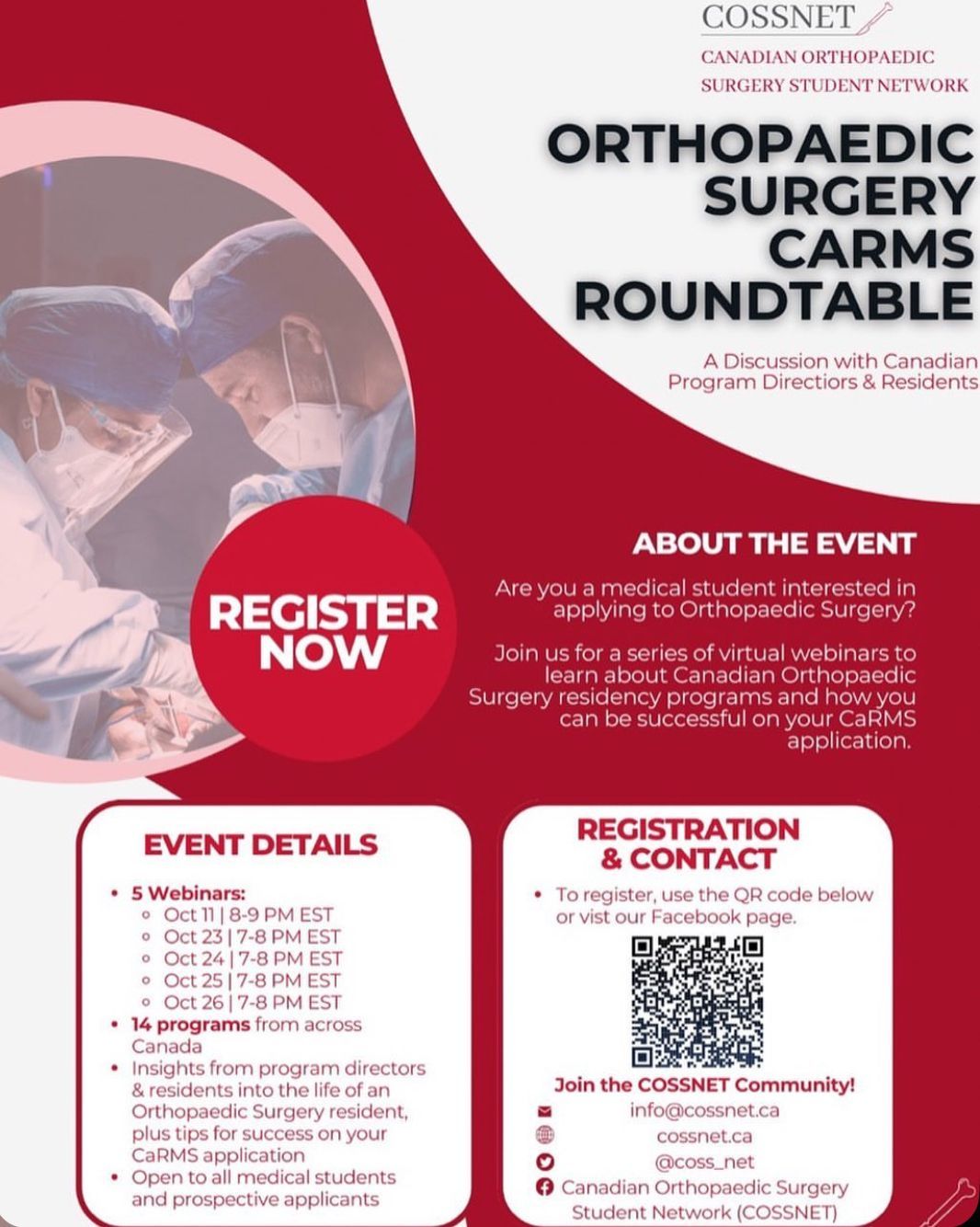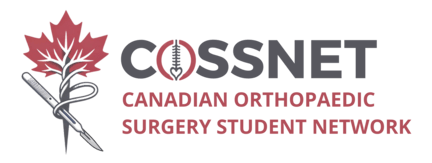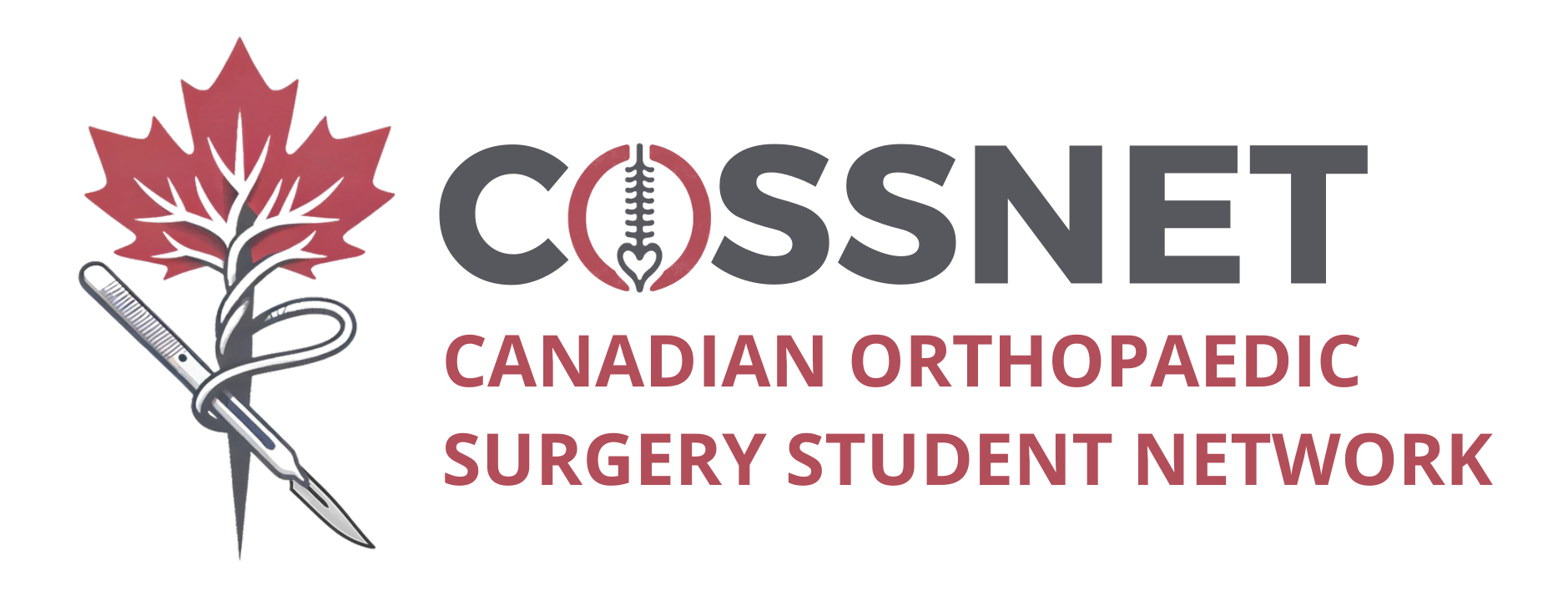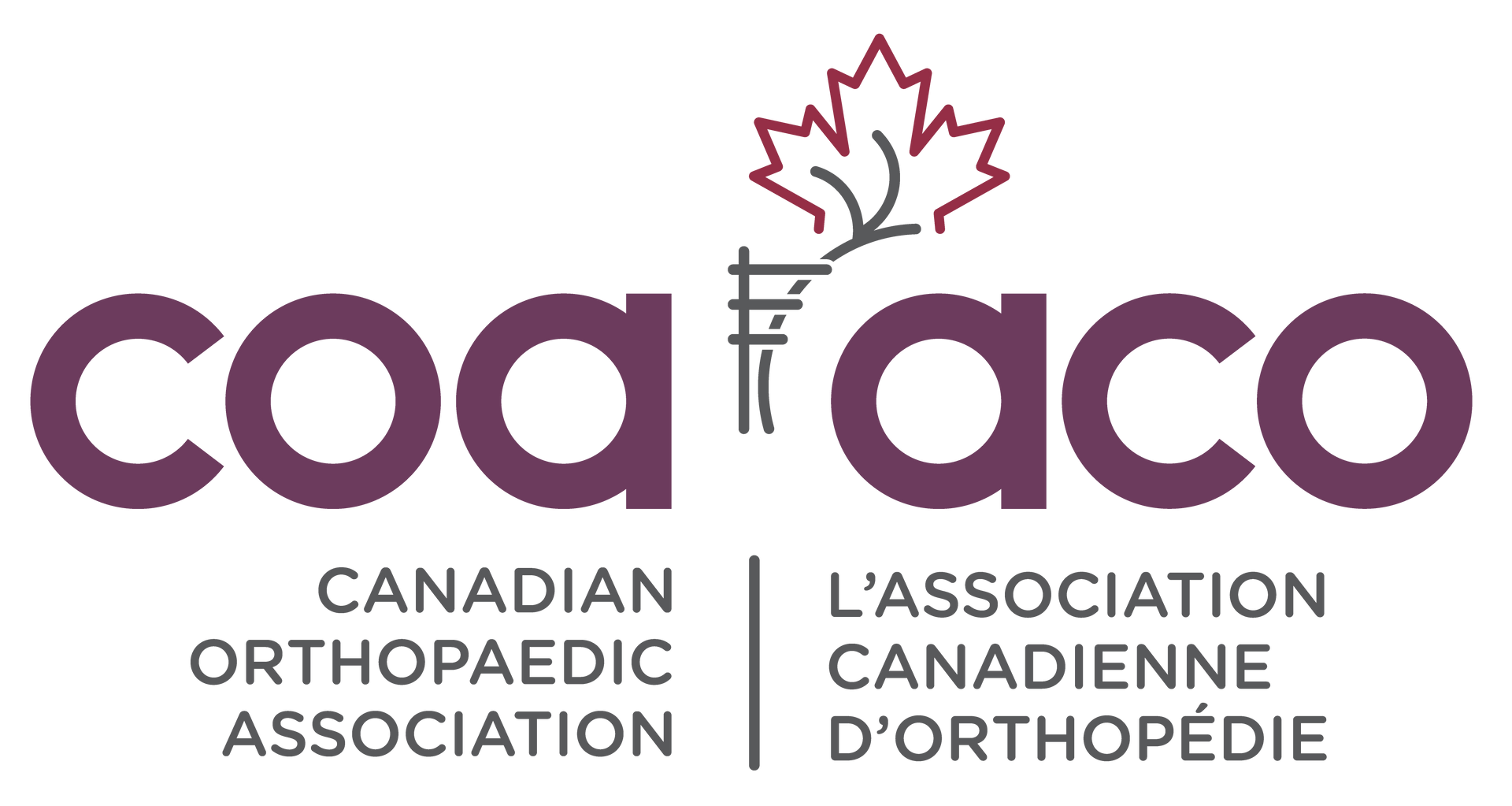General Resources
General Resources
CaRMS
Canadian Residency Matching Service. Discover the different orthopaedic surgery program profiles from Canadian universities.
Canadian Orthopaedic Association (COA)
The COA serves as the national voice for orthopaedics when speaking with government and media about issues affecting the profession.
Royal College of Physicians and Surgeons of Canada
The Royal College of Physicians and Surgeons of Canada is a regulatory college which acts as a national organization to oversee the medical education of specialists in Canada.
Orthobullets
Discover high-yield topics in orthopaedic surgery and quiz yourself using their question bank.
Canadian Orthopaedic Surgery Medical Education Course
COSMEC, a virtual course by the University of Toronto's Division of Orthopaedic Surgery.
Orthopaedic Video Theater
The Orthopaedic Video Theater (OVT) provides AAOS members trusted, relevant surgical videos from globally renowned experts across the orthopaedic landscape.
FAQs
Your questions answered by qualified professionals
How long is an orthopaedic surgery residency?
CaRMS Program DescriptionsIn Canada, orthopaedic surgery is a 5-year long residency program. Some programs offer the possibility to pursue other degrees (e.g., MSc, PhD, MBA, MPH, etc.) which may require additional years. For a complete description of each program, visit the CaRMS website.
What is the best way to get to know the programs in Canada?
 2023 Pre-CaRMS Roundtable Series
2023 Pre-CaRMS Roundtable SeriesThere are several ways to get to know the orthopaedic surgery residency programs in Canada:
- COSSNET's Annual Pre-CaRMS Roundtable Series
- Most programs host an open house event. Be on the lookout on social media!
- CaRMS website
- Individual program webpages
- Pursuing an elective rotation during clerkship
What are some tips to excel during my orthopaedic surgery rotation?
High Yield Topics (Bone Break)- Prepare Thoroughly: Review key orthopedic concepts and procedures before starting your rotation. Familiarize yourself with history-taking, physical examination, common surgeries, anatomy, and relevant literature.
- Engage Actively: Demonstrate enthusiasm and engage with the team. Ask questions, and participate in discussions at the appropriate times.
- Be Proactive: Take initiative to assist with tasks, demonstrate technical skills, and learn from experienced professionals. Show a willingness to contribute to the team's efficiency, while recognizing your role as a trainee.
- Develop Effective Communication: Communicate clearly and professionally with the team and patients.
- Stay Informed: Stay updated on current research, advancements, and emerging trends in orthopedics. This demonstrates your commitment to ongoing learning and staying at the forefront of the field.
- Seek Feedback: Actively seek feedback from your mentors and colleagues to identify areas for improvement. Use constructive criticism to refine your skills and enhance your performance.




